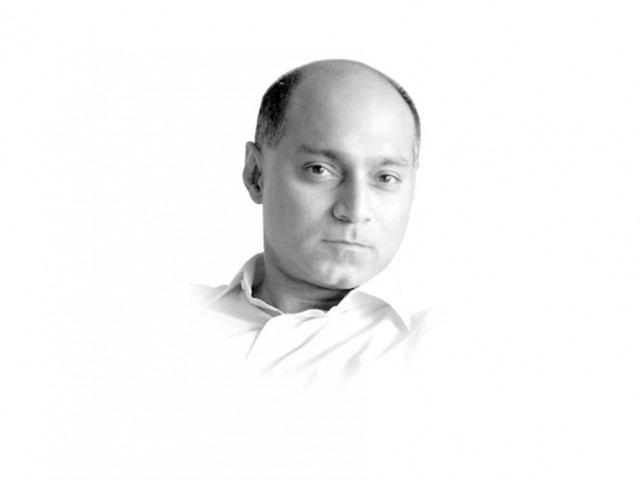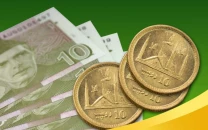Things fall apart
The outgoing year will be remembered as the year it all began to come apart at the seams.

The story might as well begin in 2008, the year of bombings, elections and politics on steroids. All the while a new parliament was elected, a new prime minister was selected, a coalition was formed and a coalition fell apart, one president was impeached and another mounted the throne, the big story of 2008 remained in the background. It was the approach of the financial crisis.
The crisis came to Pakistan in the same form it came everywhere else: as a credit crunch that left banks holding non-performing assets and as tanking financial markets that eventually transformed into a general recession as economic activity dried up. All the symptoms of the crisis were felt in Pakistan with immense force. And they began to be felt in the year 2008.
So while political transition dominated the headlines, the real test for the infant democracy came in the form of a severe economic crunch. To deal with the cascading consequences of this credit crunch and rapidly depleting reserves, the new government was forced to take some deeply unpopular measures. The price of fuel and electricity had to be sharply increased, the value of the rupee had to plunge from Rs60 to Rs85 to a dollar.
On top of this, the outgoing government had left a mountain of government borrowing from the central bank behind as a ‘gift’ for the infant democracy. So while the economy was absorbing the inflationary consequences of this massive monetisation of runaway government expenditures, the price level was hit by rising fuel and electricity prices and the falling value of the rupee. The resultant inflation could have gotten us all killed if it hadn’t been stabilised through tough budget cutting.
This enormous disturbance in the price level that the economy had to absorb played a big role in turning the tide of popular opinion against the government. To me, it’s clear that this government lost its popular momentum not because of anything to do with the restoration of the judges, which was a symbolic issue at best, but because it had to preside over one of the biggest inflationary spirals in the history of the country.
Massive budget-cutting and some help from the IMF helped prevent an outbreak of hyperinflation and default on our external obligations. The effort required to stabilise the situation was nothing short of herculean, but Pakistan saw good ownership of the effort in the hands of Shaukat Tarin, the then finance minister. Throughout 2009, the Consumer Price Index came down, after hitting a peak of 25 per cent, and the rupee stabilised at around 85 to a dollar. The State Bank allowed a cautious and measured optimism by easing its key discount rate in the middle of the year, with the expectation that the worst may now be behind us.
That brief moment of calm has now passed, broken in 2010. As the spectre of renewed economic turmoil once again rises in the West, as oil prices again approach triple digits, once again we find our country mired in its politics as the economy unravels. The budget deficit has climbed massively throughout 2010 and revenues have stagnated. Once again, the government is printing money to pay its bills, and that wretched inflation is back.
No government anywhere can rule for very long if the facts of economic life are pitted against it. Yawning deficits and the slow burn of inflation will inevitably enter the political life of the young democracy, but they will come onstage under assumed names. Crises abroad will always find their way to our shores, whether we know it or not. Political coalitions need fiscal space and electorates can turn fickle in the face of inflation. If the government does not get a strong handle on the facts of economic life, then 2011 could prove to be a fateful year for it.
Published in The Express Tribune, December 30th, 2010.















COMMENTS
Comments are moderated and generally will be posted if they are on-topic and not abusive.
For more information, please see our Comments FAQ